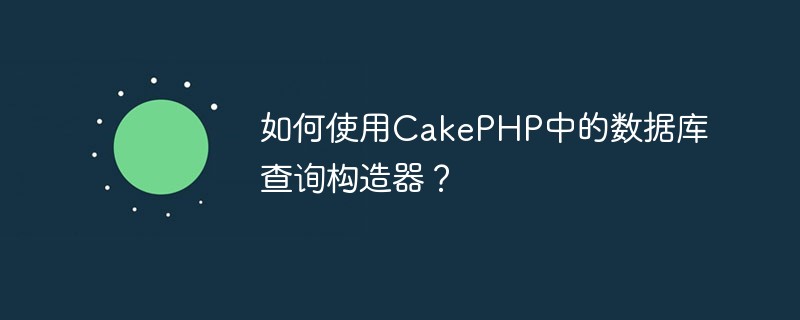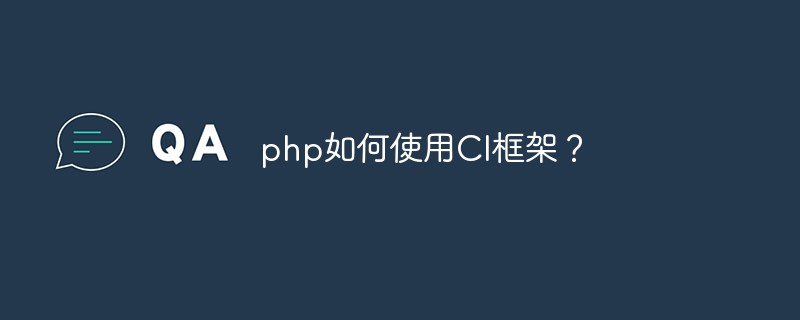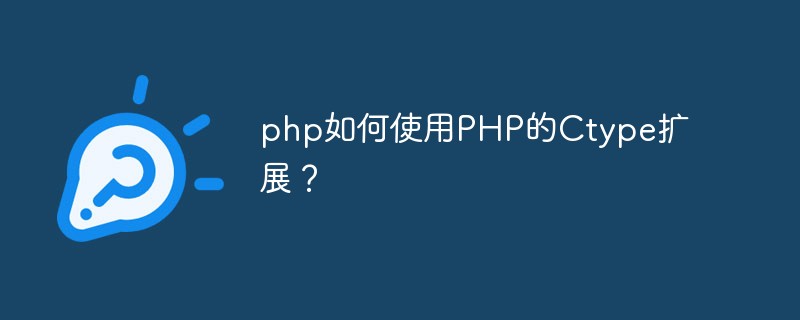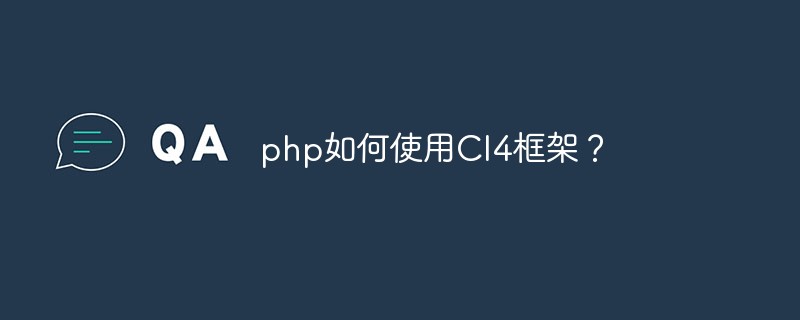This time I will bring you what are the basic methods of using vue components, what are the precautions for the basic use of vue components, the following is a practical case, let's take a look.
What is a component
A component is a simple encapsulation of data and methods. The component in the web can actually be regarded as a component of the page. It is an interface with independent logic and functions. At the same time, it can be integrated with each other according to the specified interface rules, and finally becomes a complete application. The page is composed of a It is composed of similar components, such as navigation, list, pop-up window, drop-down menu, etc. The page is just a container for such components. The components are freely combined to form a fully functional interface. When a component is not needed or you want to replace it, you can replace and delete it at any time without affecting the operation of the entire application. , The core idea of front-end componentization is to split a huge and complex thing into small things with reasonable granularity.
Use to improve development efficiency, facilitate reuse, simplify debugging steps, improve the maintainability of the entire project, and facilitate collaborative development.
As a lightweight front-end framework, vue’s core is component development.
Components can extend HTML elements and encapsulate reusable code. At a high level, a component is a custom element to which Vue.js's compiler adds special functionality. In some cases, components can also appear as native HTML elements extended with the is attribute.
In vue, components are reusable Vue instances. Because components are reusable Vue instances, they receive the same options as new Vue, such as data, computed, watch, methods, and lifecyclehooks. The only exceptions are root-instance-specific options like el.
Component registration
Global registration
Create components through Vue.component:
Vue.component('my-component-name', {
// ... 选项 ...
})
These Components are registered globally. That is to say, they can be used in the template of any newly created Vue root instance (new Vue) after registration. For example:
Vue.component('component-a', { /* ... */ })
Vue.component('component-b', { /* ... */ })
Vue.component('component-c', { /* ... */ })
new Vue({ el: '#app' })
<p>
<component-a></component-a>
<component-b></component-b>
<component-c></component-c>
</p>
The same is true in all sub-components, which means that these three components can also use each other internally.
Local registration
Global registration is often not ideal. For example, if you use a build system like webpack, registering all components globally means that even if you no longer use a component, it will still be included in your final build result. This results in an unnecessary increase in the amount of JavaScript downloaded by users.
In these cases, you can define the component via a plain JavaScript object:
var ComponentA = { /* ... */ }
var ComponentB = { /* ... */ }
var ComponentC = { /* ... */ }
Then define the component you want to use in the components options:
new Vue({
el: '#app'
components: {
'component-a': ComponentA,
'component-b': ComponentB
}
})
For each attribute in the components object, its attribute name is the name of the custom element, and its attribute value is the option object of this component.
Note that locally registered components are not available in their child components. For example, if you want ComponentA to be available in ComponentB, you need to write like this:
var ComponentA = { /* ... */ }
var ComponentB = {
components: {
'component-a': ComponentA
},
// ...
}
Use registered components in Babel and webpack
import ComponentA from './ComponentA.vue'
export default {
components: {
ComponentA
},
// ...
}
Note that in ES2015, Putting a variable name similar to ComponentA in the object is actually ComponentA: the abbreviation of ComponentA, that is, the variable name is also:
The name of the custom element used in the template
Contains the option of this component Variable name
Automated global registration of basic components
I don’t understand.
data must be a function
data: {
count: 0
}
The variables in the data defined in this way are global variables. When using components, modifying the value of the variable in one component will affect the value in all components. The value of the variable. To avoid variable interference, a component's data option must be a function, so each instance can maintain an independent copy of the returned object:
data: function () {
return {
count: 0
}
}
Dynamic components
It is very useful to dynamically switch between different components, such as in a multi-tab interface:

<!-- 组件会在 `currentTabComponent` 改变时改变 --> <component></component>
你会注意到,如果你选择了一篇文章,切换到 Archive 标签,然后再切换回 Posts,是不会继续展示你之前选择的文章的。这是因为你每次切换新标签的时候,Vue 都创建了一个新的 currentTabComponent 实例。
重新创建动态组件的行为通常是非常有用的,但是在这个案例中,我们更希望那些标签的组件实例能够被在它们第一次被创建的时候缓存下来。为了解决这个问题,我们可以用一个
<!-- 失活的组件将会被缓存!--> <keep-alive> <component></component> </keep-alive>
可以在这里查看动态组件例子。https://jsfiddle.net/chrisvfritz/Lp20op9o/
dom标签内使用组件
有些 HTML 元素,诸如
- 、
- 、
The above is the detailed content of What are the basic methods of using vue components?. For more information, please follow other related articles on the PHP Chinese website!
 php如何使用PHP的Intl扩展?May 31, 2023 pm 08:10 PM
php如何使用PHP的Intl扩展?May 31, 2023 pm 08:10 PMPHP的Intl扩展是一个非常实用的工具,它提供了一系列国际化和本地化的功能。本文将介绍如何使用PHP的Intl扩展。一、安装Intl扩展在开始使用Intl扩展之前,需要安装该扩展。在Windows下,可以在php.ini文件中打开该扩展。在Linux下,可以通过命令行安装:Ubuntu/Debian:sudoapt-getinstallphp7.4-
 如何使用CakePHP中的数据库查询构造器?Jun 04, 2023 am 09:02 AM
如何使用CakePHP中的数据库查询构造器?Jun 04, 2023 am 09:02 AMCakePHP是一个开源的PHPMVC框架,它广泛用于Web应用程序的开发。CakePHP具有许多功能和工具,其中包括一个强大的数据库查询构造器,用于交互性能数据库。该查询构造器允许您使用面向对象的语法执行SQL查询,而不必编写繁琐的SQL语句。本文将介绍如何使用CakePHP中的数据库查询构造器。建立数据库连接在使用数据库查询构造器之前,您首先需要在Ca
 php如何使用CI框架?Jun 01, 2023 am 08:48 AM
php如何使用CI框架?Jun 01, 2023 am 08:48 AM随着网络技术的发展,PHP已经成为了Web开发的重要工具之一。而其中一款流行的PHP框架——CodeIgniter(以下简称CI)也得到了越来越多的关注和使用。今天,我们就来看看如何使用CI框架。一、安装CI框架首先,我们需要下载CI框架并安装。在CI的官网(https://codeigniter.com/)上下载最新版本的CI框架压缩包。下载完成后,解压缩
 php如何使用PHP的Ctype扩展?Jun 03, 2023 pm 10:40 PM
php如何使用PHP的Ctype扩展?Jun 03, 2023 pm 10:40 PMPHP是一种非常受欢迎的编程语言,它允许开发者创建各种各样的应用程序。但是,有时候在编写PHP代码时,我们需要处理和验证字符。这时候PHP的Ctype扩展就可以派上用场了。本文将就如何使用PHP的Ctype扩展展开介绍。什么是Ctype扩展?PHP的Ctype扩展是一个非常有用的工具,它提供了各种函数来验证字符串中的字符类型。这些函数包括isalnum、is
 Vue 中的单文件组件是什么,如何使用?Jun 10, 2023 pm 11:10 PM
Vue 中的单文件组件是什么,如何使用?Jun 10, 2023 pm 11:10 PM作为一种流行的前端框架,Vue能够提供开发者一个便捷高效的开发体验。其中,单文件组件是Vue的一个重要概念,使用它能够帮助开发者快速构建整洁、模块化的应用程序。在本文中,我们将介绍单文件组件是什么,以及如何在Vue中使用它们。一、单文件组件是什么?单文件组件(SingleFileComponent,简称SFC)是Vue中的一个重要概念,它
 php如何使用PHP的DOM扩展?May 31, 2023 pm 06:40 PM
php如何使用PHP的DOM扩展?May 31, 2023 pm 06:40 PMPHP的DOM扩展是一种基于文档对象模型(DOM)的PHP库,可以对XML文档进行创建、修改和查询操作。该扩展可以使PHP语言更加方便地处理XML文件,让开发者可以快速地实现对XML文件的数据分析和处理。本文将介绍如何使用PHP的DOM扩展。安装DOM扩展首先需要确保PHP已经安装了DOM扩展,如果没有安装需要先安装。在Linux系统中,可以使用以下命令来安
 php如何使用PHP的geoip扩展?Jun 01, 2023 am 09:13 AM
php如何使用PHP的geoip扩展?Jun 01, 2023 am 09:13 AMPHP是一种流行的服务器端脚本语言,它可以处理网页上的动态内容。PHP的geoip扩展可以让你在PHP中获取有关用户位置的信息。在本文中,我们将介绍如何使用PHP的geoip扩展。什么是PHP的GeoIP扩展?PHP的geoip扩展是一个免费的、开源的扩展,它允许你获取有关IP地址和位置信息的数据。该扩展可以与GeoIP数据库一起使用,这是一个由MaxMin
 php如何使用CI4框架?Jun 01, 2023 pm 02:40 PM
php如何使用CI4框架?Jun 01, 2023 pm 02:40 PMPHP是一种广泛使用的服务器端脚本语言,而CodeIgniter4(CI4)是一个流行的PHP框架,它提供了一种快速而优秀的方法来构建Web应用程序。在这篇文章中,我们将通过引导您了解如何使用CI4框架,来使您开始使用此框架来开发出众的Web应用程序。1.下载并安装CI4首先,您需要从官方网站(https://codeigniter.com/downloa


Hot AI Tools

Undresser.AI Undress
AI-powered app for creating realistic nude photos

AI Clothes Remover
Online AI tool for removing clothes from photos.

Undress AI Tool
Undress images for free

Clothoff.io
AI clothes remover

AI Hentai Generator
Generate AI Hentai for free.

Hot Article

Hot Tools

PhpStorm Mac version
The latest (2018.2.1) professional PHP integrated development tool

MantisBT
Mantis is an easy-to-deploy web-based defect tracking tool designed to aid in product defect tracking. It requires PHP, MySQL and a web server. Check out our demo and hosting services.

SublimeText3 Linux new version
SublimeText3 Linux latest version

SecLists
SecLists is the ultimate security tester's companion. It is a collection of various types of lists that are frequently used during security assessments, all in one place. SecLists helps make security testing more efficient and productive by conveniently providing all the lists a security tester might need. List types include usernames, passwords, URLs, fuzzing payloads, sensitive data patterns, web shells, and more. The tester can simply pull this repository onto a new test machine and he will have access to every type of list he needs.

EditPlus Chinese cracked version
Small size, syntax highlighting, does not support code prompt function






